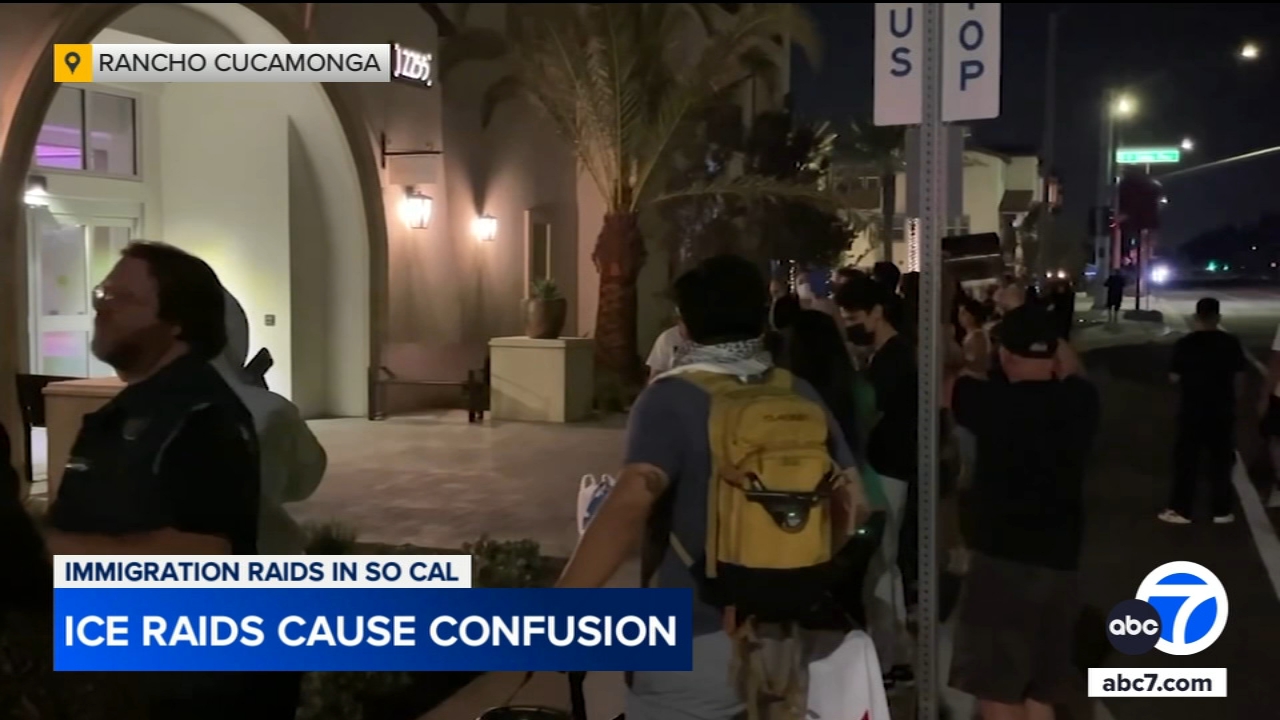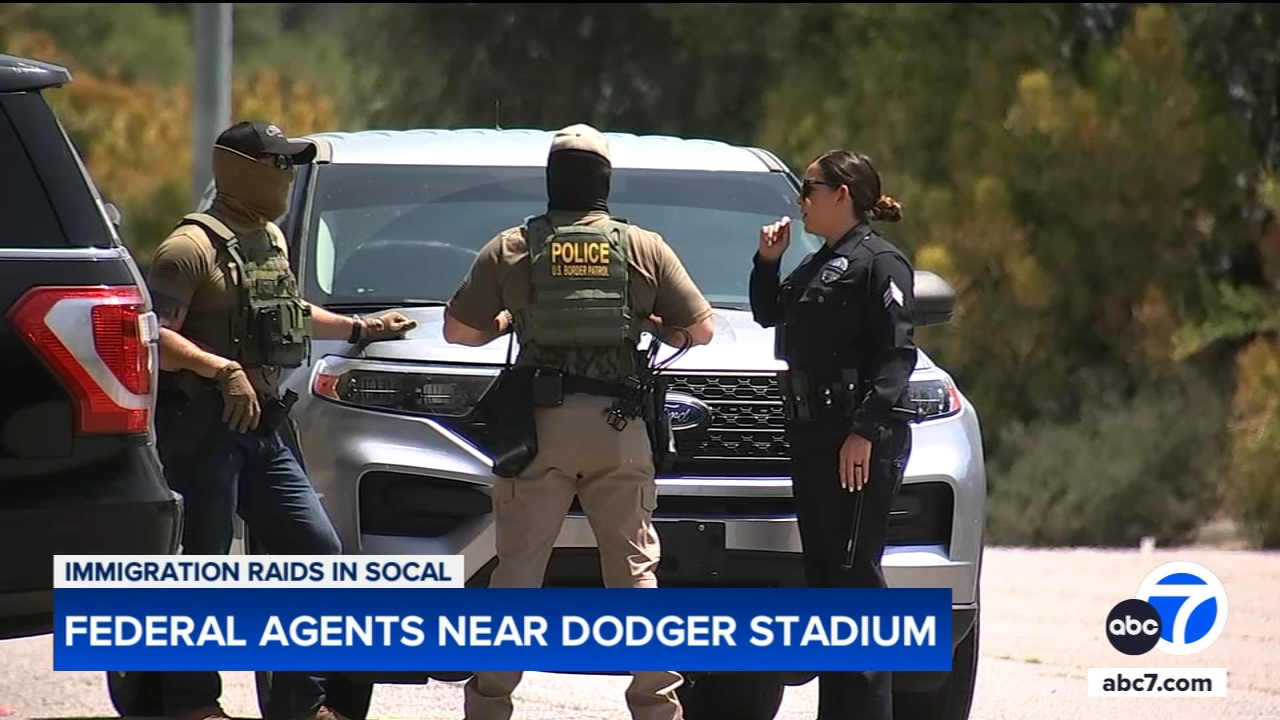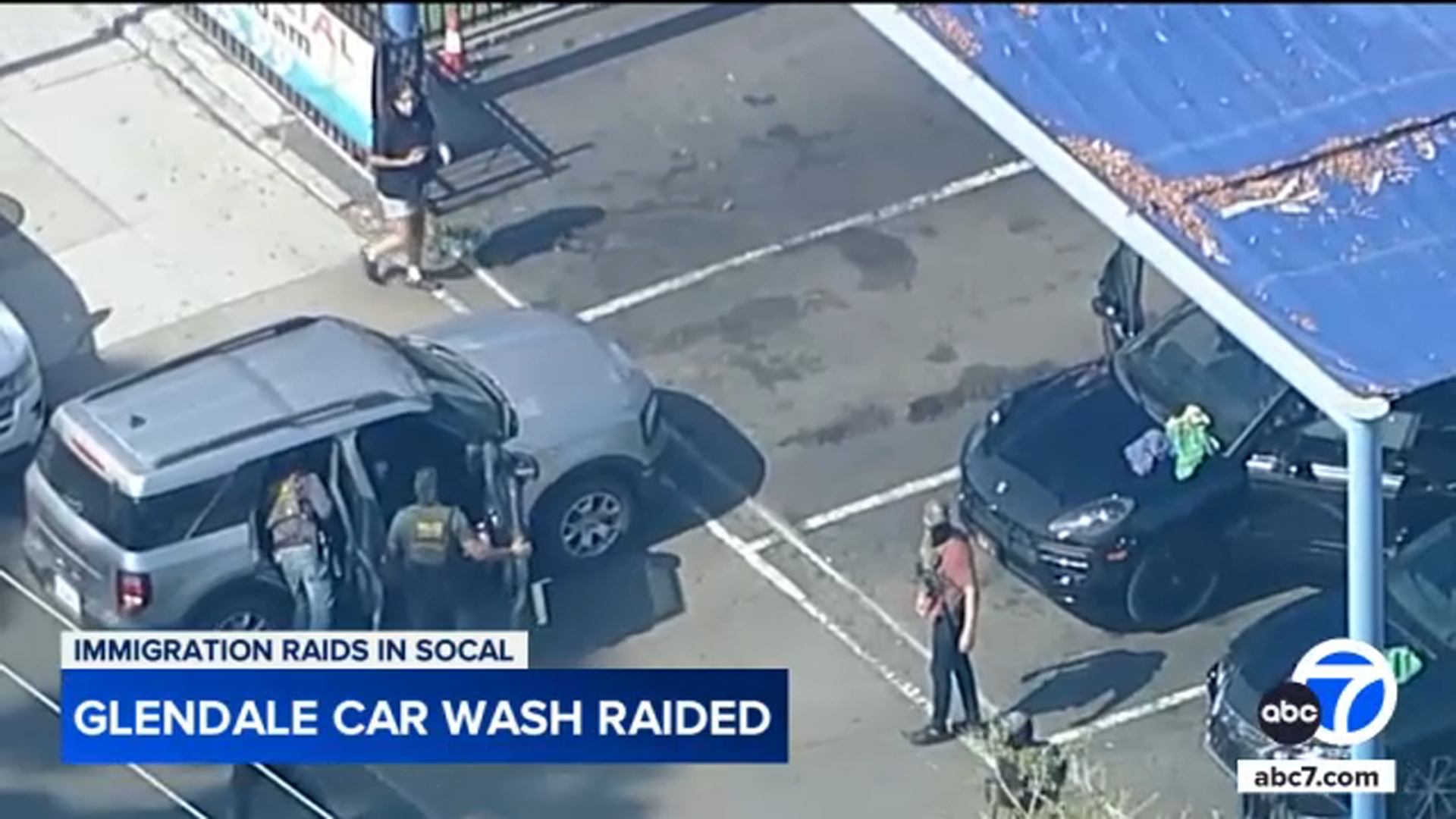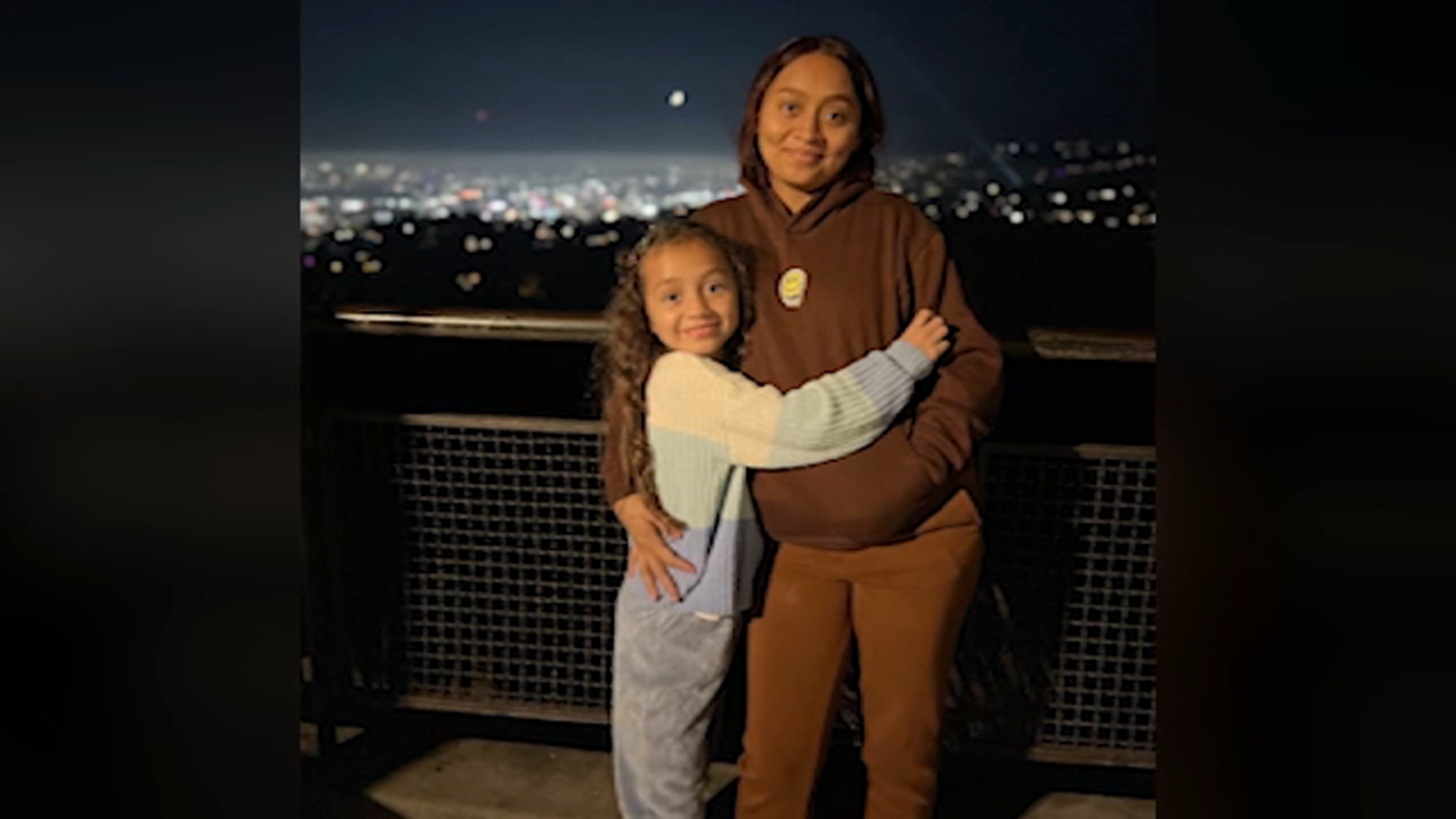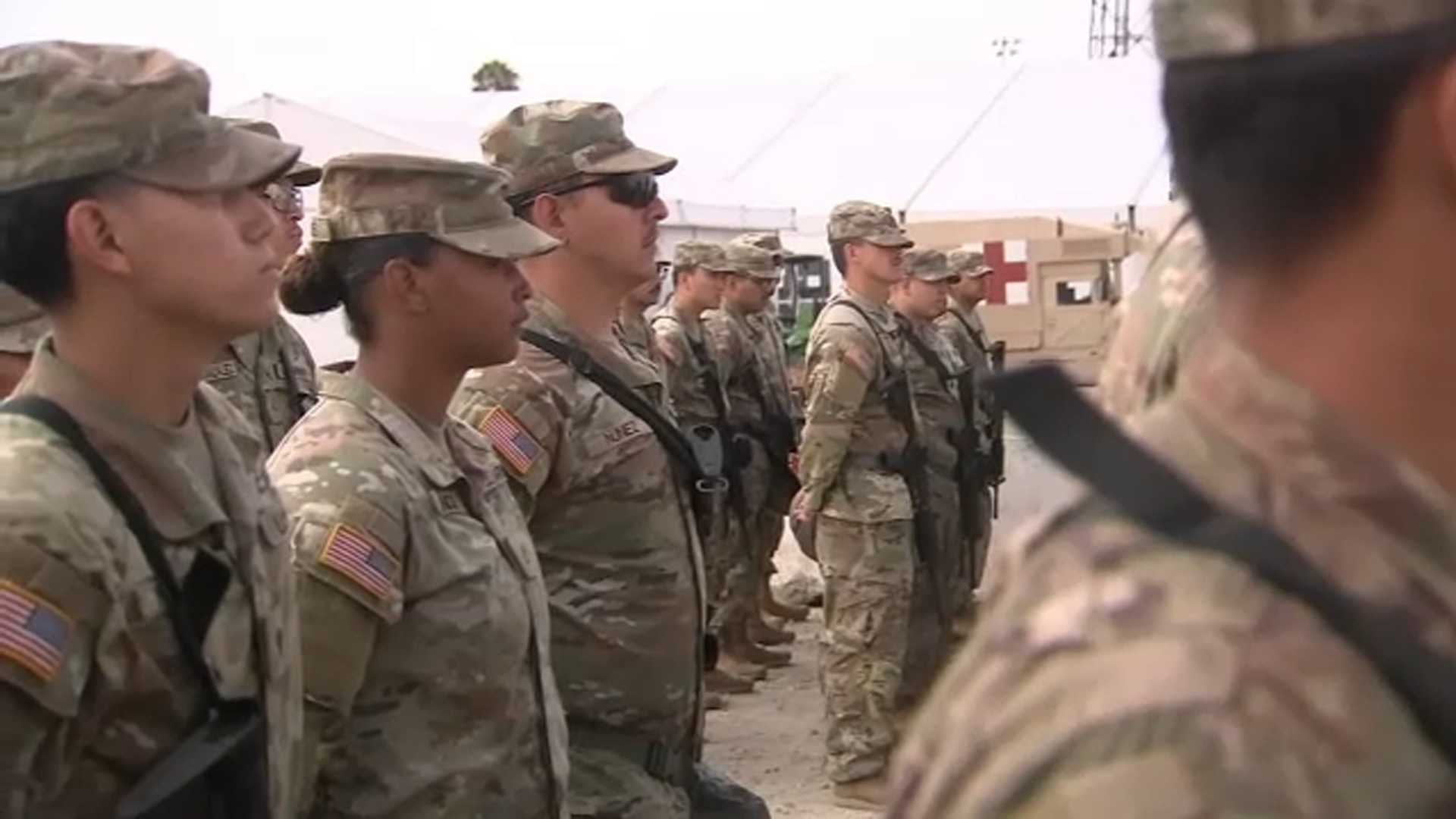Appeals court lets Trump keep control of National Guard troops deployment in LA
LOS ANGELES -- An appeals court on Thursday allowed President Donald Trump to keep control of National Guard troops he deployed to Los Angeles following protests over immigration raids.
The decision halts a ruling from a lower court judge who found Trump acted illegally when he activated the soldiers over opposition from California Gov. Gavin Newsom.
The deployment was the first by a president of a state National Guard without the governor's permission since 1965.
In its decision, a three-judge panel on the 9th U.S. Circuit Court of Appeals unanimously concluded it was likely Trump lawfully exercised his authority in federalizing control of the guard.
It said that while presidents don't have unfettered power to seize control of a state's guard, the Trump administration had presented enough evidence to show it had a defensible rationale for doing so, citing violent acts by protesters.
"The undisputed facts demonstrate that before the deployment of the National Guard, protesters 'pinned down' several federal officers and threw 'concrete chunks, bottles of liquid, and other objects' at the officers. Protesters also damaged federal buildings and caused the closure of at least one federal building. And a federal van was attacked by protesters who smashed in the van's windows," the court wrote. "The federal government's interest in preventing incidents like these is significant."
It also found that even if the federal government failed to notify the governor of California before federalizing the National Guard as required by law, Newsom had no power to veto the president's order.
The California governor's office didn't immediately respond to a request for comment.
Trump celebrated the decision on his Truth Social platform, calling it a "BIG WIN."
He wrote that "all over the United States, if our Cities, and our people, need protection, we are the ones to give it to them should State and Local Police be unable, for whatever reason, to get the job done."
The court case could have wider implications on the president's power to deploy soldiers within the United States after Trump directed immigration officials to prioritize deportations from other Democratic-run cities.
Trump, a Republican, argued that the troops were necessary to restore order. Newsom, a Democrat, said the move inflamed tensions, usurped local authority and wasted resources. The protests have since appeared to be winding down.
Two judges on the appeals panel were appointed by Trump during his first term. During oral arguments Tuesday, all three judges suggested that presidents have wide latitude under the federal law at issue and that courts should be reluctant to step in.
The case started when Newsom sued to block Trump's command, and he won an early victory from U.S. District Judge Charles Breyer in San Francisco.
Breyer found that Trump had overstepped his legal authority, which he said only allows presidents can take control during times of "rebellion or danger of a rebellion."
"The protests in Los Angeles fall far short of 'rebellion,'" wrote Breyer, who was appointed by former President Bill Clinton and is brother to retired Supreme Court Justice Stephen Breyer.
The Trump administration, though, argued that courts can't second guess the president's decisions and quickly secured a temporary halt from the appeals court.
The ruling means control of the California National Guard will stay in federal hands as the lawsuit continues to unfold.
Governor Gavin Newsom responded to the ruling on X.
California Attorney General Rob Bonta released the following statement:
"While it is disappointing that our temporary restraining order has been stayed pending the federal government's appeal, this case is far from over," said Attorney General Bonta. "The Trump Administration far overreached its authority with its unprecedented and unlawful federalization of the California National Guard and deployment of military troops into our communities. As senior military leaders serving in administrations from JFK to Obama have affirmed, the use of the military on U.S. soil should be 'rare, serious, and legally clear.' That is not the case in Los Angeles where our state and local law enforcement officers responded effectively to isolated episodes of violence at otherwise peaceful protests and the President deliberately sought to create the very chaos and crises he claimed to be addressing. While the court did not provide immediate relief for Angelenos today, we remain confident in our arguments and will continue the fight."



